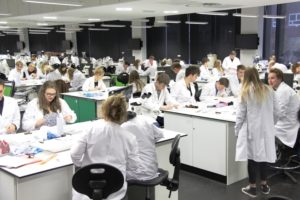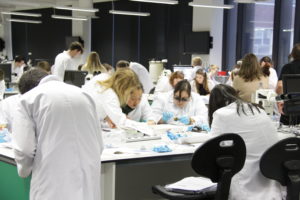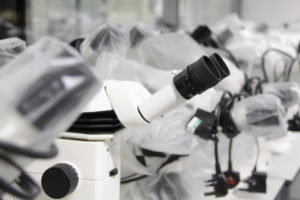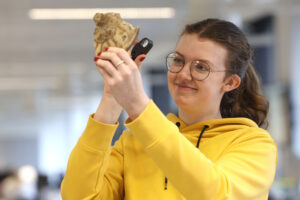How you'll learn
Teaching takes place through lectures, practical sessions, workshops, seminars, tutorials and computer-based learning, with an emphasis on learning through doing.
You will typically receive at least 15 hours of formal teaching each week.
A typical module might involve two or three one-hour lectures each week, and often a three-hour laboratory or computer-based practical as well. Tutorials typically involve groups of 4-7 students meeting with a member of staff at least every two weeks in years one and two. In years three and four, students meet with their project supervisor on a weekly or more frequent basis.
How you're assessed
Assessment matches the learning objectives for each module and may take the form of written exams, coursework submissions in the form of essays, scientific papers, briefing notes or lab notebooks, oral and poster presentations and contributions to group projects. Coursework is designed around the types of problems encountered, and the skills needed, in commercial, research and public sector jobs. There is an emphasis on data analysis and the use of big data towards understanding the global nature of climate change.
Liverpool Hallmarks
We have a distinctive approach to education, the Liverpool Curriculum Framework, which focuses on research-connected teaching, active learning, and authentic assessment to ensure our students graduate as digitally fluent and confident global citizens.
The Liverpool Curriculum framework sets out our distinctive approach to education. Our teaching staff support our students to develop academic knowledge, skills, and understanding alongside our graduate attributes:
- Digital fluency
- Confidence
- Global citizenship
Our curriculum is characterised by the three Liverpool Hallmarks:
- Research-connected teaching
- Active learning
- Authentic assessment
All this is underpinned by our core value of inclusivity and commitment to providing a curriculum that is accessible to all students.







